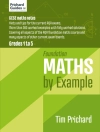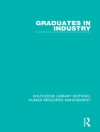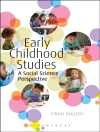This book examines the crucial issues affecting Human Rights Education in contexts of culture, religious and societal diversity. It exhibits an impressive scholarly achievement, capturing and combining the insights of both established academics and emerging researchers. Each author succeeds in distilling the knowledge of their particular fields of interest, as well as conveying the essence of their intuitive understanding and the richness of the context. This book considers a vari...
This book examines the crucial issues affecting Human Rights Education in contexts of culture, religious and societal diversity. It exhibits an impressive scholarly achievement, capturing and combining the insights of both established academics and emerging researchers. Each author succeeds in distilling the knowledge of their particular fields of interest, as well as conveying the essence of their intuitive understanding and the richness of the context. This book considers a variety of connected content and methodological issues in three major sections: ‘Philosophical and policy perspectives’, ‘Gender discourses: diverse perspectives’ and ‘Discourses on narratives as safe spaces’. The Edition is further strengthened by allowing international reviewers the opportunity of engaging with the contributors in the Introduction and Conclusion, an innovative departure from conventional formats and which will provide a global perspective to the readers. The focus of the various chapters succeeds in establishing both a foundation and platform for dialogue surrounding human rights and human rights education in modern policy and governance. Aptly named “Safe Spaces”, the Edition offers in-depth and credible (“safe”) nuances (“spaces”), in terms of the somewhat reified concept of human rights, at a time when human rights remains a highly topical and contested international issue. As such, the book imparts an immense scope of theoretical and empirical perspectives, reflected by the distinguished intellectuals who navigate the terrain of their respective disciplines with profound erudition. This book represents a collaborative effort of immeasurable value. This exemplary edition is both timeous, and will prove timeless.












